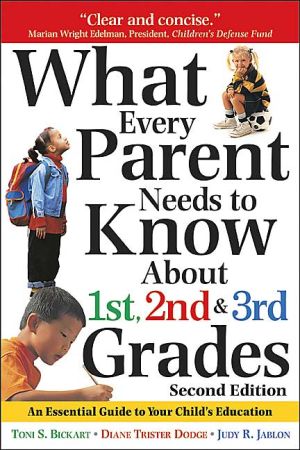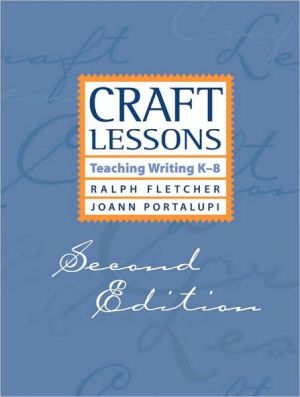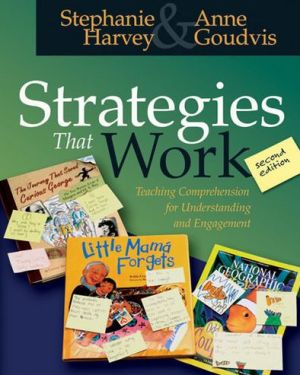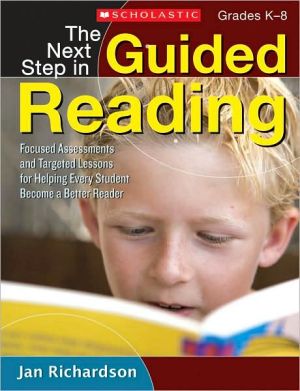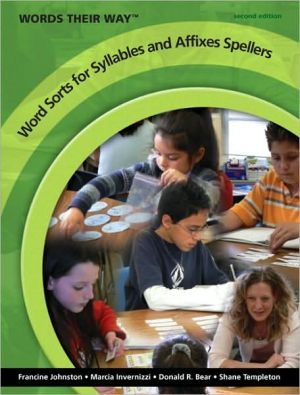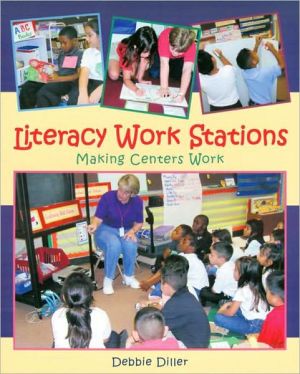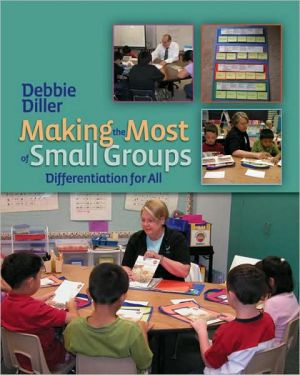What Every Parent Needs to Know to Know about 1st, 2nd & 3rd Grades
Parents acting as informed consumers can transform our schools. What Every Parent Needs to Know... takes you inside exciting classrooms where children are challenged to become thinkers, problem solvers and enthusiastic leaders. You will learn:\ --How children become readers and writers\ --How children learn math, science and social studies skills\ --How to survive homework\ --What the debate over phonics, whole language and invented spelling is all about\ --How to best work with your child's...
Search in google:
An essential guide to the education of young children.
AcknowledgmentsixForewordxiPrefacexv1.Learning in the Early Grades1Questions Parents AskWhat Six-to-Eight Year Olds Are LikePrinciples That Make Learning EffectiveWhy Schools Need to Be Different TodayWhat to Look ForA Parent's ChecklistHow to Get Involved2.The Best Classroom for Your Child15The Classroom as a WorkplaceThe Physical Arrangement of the ClassroomPlacement and Accessibility of Materials and SuppliesThe Daily Schedule and RoutinesRulesThe Classroom as a CommunityMaking FriendsRespecting OthersResolving ConflictsLearning TogetherHow Parents Can HelpQuestions to Ask Your Child's Teacher3.How Children Become Readers31What's Involved in Learning to ReadPhonics and Whole LanguageDefining the TermsHow the Debate Misses the PointHow Reading Is TaughtHow Parents Can HelpQuestions to Ask Your Child's Teacher4.How Children Become Writers45What's Involved in Learning to WriteHow Writing Is TaughtLearning the Mechanics of WritingLearning to Be WritersIntegrating Writing in Other Content AreasHow Parents Can HelpQuestions to Ask Your Child's Teacher5.How Children Become Mathematical Thinkers59How Children Learn to Think MathematicallyHow Math Is TaughtUsing Math MaterialsUsing Calculators and ComputersMath Throughout the DayHow Parents Can HelpQuestions to Ask Your Child's Teacher6.How Children Learn Social Studies75What's Involved in Social StudiesLearning Social Studies ConceptsLearning Social Studies SkillsHow Social Studies Is TaughtLong Term Studies and ResearchLearning Social Studies in a Classroom CommunityHow Parents Can HelpQuestions to Ask Your Child's Teacher7.How Children Become Scientific Thinkers89What's Involved in Scientific ThinkingUsing Science SkillsLearning Content Through First-Hand ResearchHow Science Is TaughtA Study of Living ThingsA Study of EnergyMaking Science Part of Everyday Life in the ClassroomHow Parents Can HelpQuestions to Ask Your Child's Teacher8.How Children's Learning Is Assessed103The Purposes of AssessmentAssessment Describes Development and LearningAssessment Helps Children Succeed as LearnersAssessment Enables Teachers to Modify InstructionEffective Approaches to AssessmentDescriptive Information Is Most ValuableA Variety of Methods Are NeededConferences Are Part of AssessmentWhat about Conventional TestsNew Federal Requirements for Standards and AssessmentHow Parents Can HelpQuestions to Ask Your Child's Teacher9.Helping with Homework119What Is ReasonableWhat Should You Expect from Your Child's TeacherHow Parents Can HelpQuestions to Ask Your Child's TeacherConclusion123Glossary125Developmental Characteristics of 1st, 2nd, and 3rd Graders129Learning Disabilities, Special Needs, and Inclusion135Resources143Endnotes147Index151
